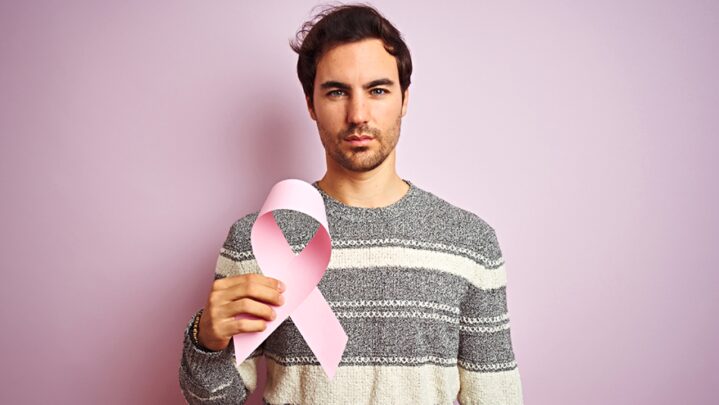All newborns are born with milk ducts in their breast tissue. Breast cancer can affect both men and women, albeit it develops in various ways over time. Women are at a substantially higher risk than men. Men account for less than 1% of all breast cancer cases. Male breast cancer is an uncommon type of cancer that develops in men’s breast tissue. Many individuals are unaware that men have breast tissue and are susceptible to breast cancer. Cancerous cells can arise in almost any portion of the body and spread to other parts.
When cells in the breast begin to grow out of control, breast cancer develops. These cells normally grow into a tumor, which can be visible on x-rays or felt like a bump.
If the cells in the tumor may develop around the surrounding tissues or spread to distant parts of the body, it is malignant (cancer). Male breast cancer is most common in older men, although it can strike anyone at any time.
Symptoms
Male breast cancer can cause the following signs and symptoms:
1) Redness or scaling on the nipple, or a nipple that is turning inward
2) Dimpling, puckering, redness, or scaling on the skin around the breast area.
3) Breast tissue thickening or a painless lump
4) Nipple discharge
Causes
Male breast cancer develops when some breast cells divide more quickly than healthy cells, according to doctors. The growing cells form a tumor that can spread to surrounding tissue, lymph nodes, or other parts of the body (metastasize).
Some risk factors include:
1. As men become older, the chances of developing breast cancer increase. Men in their 60s are the most likely to be diagnosed with male breast cancer.
2. The risk of breast cancer is enhanced with the use of estrogen-related medicines, such as those used for prostate cancer hormone therapy.
3. If you have a close relative who has been diagnosed with breast cancer, you are more likely to develop the disease yourself.
4. Changes in genes or hormone levels can both have a role.
5. Diseases of the liver like cirrhosis of the liver can cause male hormones to drop and female hormones to rise, raising the risk of breast cancer.
6. Obesity is linked to increased estrogen levels in the body, which raises the risk of male breast cancer.
Keep reading successyeti.com
Also Read: Types Of Breast Cancer





